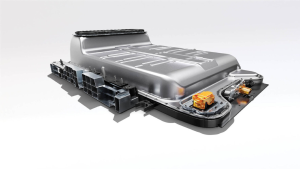Exploring the Science of Lithium Batteries: How They Work and Why They're Popular
Lithium-ion batteries are one of the most popular and widely used types of rechargeable batteries today. They are everywhere, in everything from computers and cellphones to electric cars and electrical equipment. The science of lithium batteries, their operation, and their appeal will all be discussed in this article.

Chemistry and Components of Lithium-ion Batteries
Lithium ions are the main electrolyte of rechargeable lithium-ion batteries, which are a specific form of battery. The battery consists of two electrodes, the cathode, and the anode, separated by a liquid or solid electrolyte. Lithium ions are kept in the anode of the battery after moving from the cathode during charging. When the battery runs out, the lithium ions return to the cathode and create an electric current.
A lithium metal oxide, such cobalt, nickel, or manganese, is frequently used to create the cathode of a lithium-ion battery. Although other materials, such silicon, are occasionally employed, the anode is primarily formed of graphite. Most of the time, the electrolyte is composed of lithium salts that have been dissolved in organic solvents.
Advantages of Lithium-ion Batteries
The advantages of lithium-ion batteries over other types of batteries are numerous, including:
High Energy Density: Compared to other rechargeable battery types, lithium-ion batteries have a greater energy density, which allows them to store more energy per unit of weight or volume.
Long Lifespan: In the long term, lithium-ion batteries are a cost-effective option because they can often last for several years with regular maintenance.
Low Self-Discharge: Compared to other battery types, lithium-ion batteries have a lower rate of self-discharge, which allows them to maintain their charge for a longer length of time.
Fast Charging: Lithium-ion batteries can be used more conveniently and effectively since they can be charged more quickly than other battery kinds.
Applications of Lithium-ion Batteries
Lithium-ion batteries are used in a wide range of applications, including:
Portable Electronics: Due to its high energy density and low self-discharge rate, lithium-ion batteries are often utilized in portable devices like smartphones, laptops, and tablets.
Electric Vehicles: The great energy density and quick charging characteristics of lithium-ion batteries make them an attractive option for use in electric cars as well.
Power Tools: Power tools like drills and saws employ lithium-ion batteries because of their lightweight construction and high energy density.
Renewable Energy Storage: Power tools like drills and saws employ lithium-ion batteries because of their lightweight construction and high energy density.
Challenges and Future Developments
Despite their many advantages, lithium-ion batteries are not without their challenges. Lithium-ion batteries easily overheat and catch fire, especially when they are damaged or overworked, which is one of their main issues. This has led to safety concerns and has spurred research into safer battery technologies.
There has also been growing concern over the environmental impact of lithium-ion batteries, particularly regarding the extraction and disposal of lithium. While lithium-ion batteries are recyclable, the process is still relatively inefficient and can be costly.
In response to these challenges, researchers are exploring alternative battery chemistries, such as sodium-ion and solid-state batteries, which offer several advantages over lithium-ion batteries, including increased safety and lower environmental impact.
Conclusion
The way we utilize portable devices, electric cars, and renewable energy sources has been changed by lithium-ion batteries. With their high energy density, long lifespan, and fast charging capabilities, they have become an essential component in many industries. Despite their challenges, ongoing research and development promise to make lithium-ion batteries even safer.
Battery Management Systems for Lithium Batteries
The battery management system (BMS), which is in charge of ensuring the battery operates safely and effectively, is one important component of lithium batteries. In order to avoid overcharging, over-discharging, and overheating, the BMS monitors and regulates the battery’s charging and discharging as well as its temperature and state of charge (SOC).
Advantages of Lithium Batteries
There are several advantages to using lithium batteries, including:
High energy density: Lithium batteries can store more energy in a smaller, lighter packaging than lead-acid batteries because they have a greater energy density.
Long cycle life: Compared to lead-acid batteries, lithium batteries may be charged and drained many more times without noticeably losing performance. This is due to the greater cycle life of lithium batteries.
Fast charging: In situations where downtime must be kept to a minimum, lithium batteries’ ability to charge significantly more quickly than lead-acid batteries might be crucial.
Low self-discharge rate: Compared to lead-acid batteries, lithium batteries have a lower rate of self-discharge, which allows them to maintain their charge for longer periods of time before requiring replenishment.
Environmentally friendly: Due to the absence of heavy metals like lead or acid, lithium batteries are typically seen as being more ecologically friendly than lead-acid batteries.
Conclusion
As a result of its high energy density, lengthy cycle life, quick charging, low self-discharge rate, and environmental friendliness, lithium batteries have grown in popularity in recent years. While they are more expensive than lead-acid batteries, the benefits they offer often make them a better choice in many applications. We may anticipate even more powerful and effective batteries in the future as lithium battery technology develops further.






